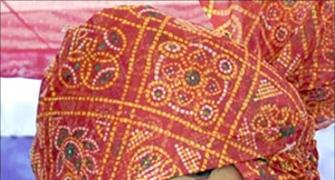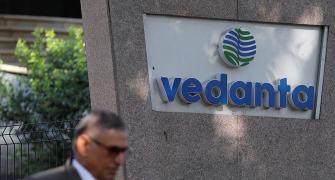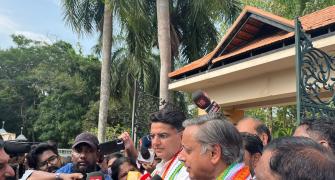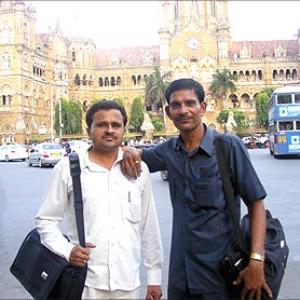It was in the seventies that Cadbury (now Mondelez India Foods) launched a campaign to encourage cocoa cultivation in India, notes Prashant Peres.

Circa 1948, Cadbury (now known as Mondelez India Foods) started operations in India.
At that time, all chocolates were imported from the UK. After a few years, while the company did start manufacturing chocolates in India, it still had to import its most precious raw material - cocoa.
So the company started conducting research in the country to explore the possibility of cultivating cocoa. Research revealed that the land and climate in south India was most conducive to cocoa cultivation.
And, hence, began Mondelez India's journey of bringing cocoa to life in India, partnering with the backbone of the Indian economy- the farmer. In the process, it introduced farmers to a new crop, a new experience in intercropping and new livelihood options.
This year, Mondelez India's cocoa sustainability programme "Cocoa Life" will complete 50 years. The journey began in 1965 when Mondelez India set up an experimental farm in Wayanad district in Kerala.

In 1970, the company launched a campaign to encourage cocoa cultivation, distributing thousands of seedlings and planting material free of cost and providing technical know-how to farmers.
As the crop adapted well to the local conditions, the commercial cultivation expanded to help coconut farmers in Tamil Nadu, Andhra Pradesh and Karnataka to plant cocoa and diversify beyond coconut trees.
In 1987, Mondelez India began funding a cocoa research programme at the Kerala Agricultural University.
By 1997, work began in developing cocoa in non-traditional areas. In 2007, the National Horticultural Mission declared cocoa as a crop that would receive support under the scheme. The Tamil Nadu Agriculture University started research on cocoa supported by Mondelez India in 2008.

Research has always been an integral part of the Cocoa Life programme.
The research focuses on areas like plant breeding, agronomic practices and the environmental impact and has enabled the company to strengthen its knowledge and train farmers across different aspects of cocoa cultivation, which has led to economic sustainability to farmers and an assured regular supply of the precious raw material to the company.
In the initial stages, the company faced some challenges like lack of awareness among farmers, weather factors, competition from other crops, concerns about market fluctuations etc.
But the team worked closely with farmers to make cocoa farming a profitable proposition.
Farmers were educated about the cultivation techniques and were offered buy-back guarantees to mitigate financial risks associated with the cultivation of the crop. Over the years, cultivating cocoa has made several farmers financially independent.

This intercropping of cocoa made plantations more sustainable. In fact, farmers who practised intercropping of cocoa with coconut and arecanut saw their incomes double.
Most of these cocoa farmers are now educating their children in good schools and possess assets like houses and cars.
Over the years, the company has been actively involved in supporting education of children of cocoa farm workers. It has been focusing on upgrading infrastructure in schools in the cocoa communities to improve educational conditions.
The company has also been focusing on women and marginalised communities who are involved in cocoa cultivation - women farmers are being trained in good agriculture practices, which can help them enhance their skills, realise better yields and generate better employment and remuneration.
Additionally, tribal farmers are being provided with training on cocoa cultivation practices, seedlings and agriculture implements so that they are able to realise benefits from farming.

The impact of the Cocoa Life programme on the farmers has been so strong and positive that the farmers actually call the cocoa tree the Cadbury tree. It is a relationship of mutual trust and a strong sense of unity in the community in which the company functions.
Since 1965, Cocoa Life has transformed the lives of over 100,000 farmers across these four states in India.
Today, Mondelez India operates 11 nurseries - providing cocoa seedlings to 5,000 farmers annually. In the past five years, it has added 5,000 farmers to the programme every year.
It has a dedicated team of 60 employees who travel through the cocoa growing regions supporting farmers with advice and assistance in all aspects of cocoa cultivation, in addition to staffing a telephone helpline to assist farmers with technical questions.
While in the initial stages the focus on cocoa cultivation was mainly to address the raw material needs, today it is a more holistic approach in terms of economic, social and environmental sustainability aspects.

The Cocoa Life programme has a huge potential for carbon sequestration through the green cover it provides, thus helping the environment. Third-party studies have revealed that every five million cocoa trees planted may sequester about 3,5000 tonne of carbon annually.
Cocoa as a commercial crop has immense potential for expansion in India. Ideal climate conditions and suitability of it to be grown as an intercrop and mixed crop is an advantage that has led to its promotion in the country.
There also exists a huge opportunity for cocoa plantation since a very small portion of the one million hectares of potential areas in India, is currently being used to cultivate cocoa. With the widening demand and supply gap of cocoa across across the world, there is a risk of over dependence on major cocoa producing countries.
However, India stands to benefit because there is lot of scope of increasing the production in the medium term, with an eye on the export in the long term. The entire value chain starting from farming to the food processing industry in India will be benefited from increased domestic cocoa production.
Till today, Mondelez India remains the single largest corporate organisation to nurture and promote cocoa cultivation in India.
From being a net importer of cocoa, Mondelez India today sources a third of its cocoa requirements locally. The quality of Indian cocoa is comparable to the best in the world.
Mondelez India can proudly state that as the leader in the chocolate category in India, it supports the entire supply chain.
Prashant Peres is Director, Marketing, Chocolate, Mondelez India Foods.










